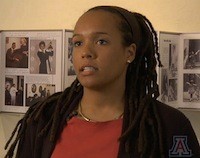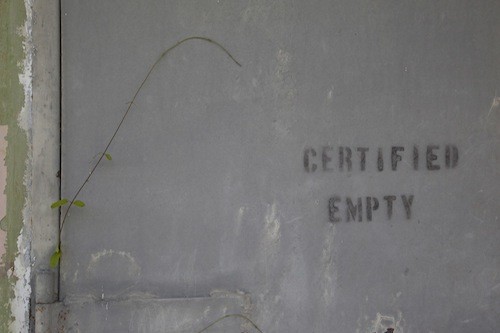This coming Saturday, Memphis-based photographer Coriana Close will be showing “Solar,” recent photos and videos from her summer trek across Puerto Rico and Vieques. Solar means “piece of land” in Spanish, but reads differently as the title for a North American show. “Solar,” in English, means the sun, but it is the sun as experienced through space science and earth science, as read by sci-fi writers and clean energy activists. Solar panels, solar technologies, Solaris.
The opening will take place at Greely Myatt’s Wrong Again Gallery, a short jag away from Sun (Solar?) Studios on Marshall Avenue. Wrong Again Gallery, according to Myatt, is “more of a project than a gallery” (The “actual” gallery exists behind a nonfunctional door inside Myatt’s sculpture studio. It’s a concept.) For exhibitions, Myatt skypes in a remotely located artist, who discusses his or her work via a large projector screen. The only rule, Myatt says, is that the artist cannot be in physical attendance of the show.
It is fitting that the title of Close’s show should have dual meaning: tying her directly to the land on which she has been walking and camping, and beaming her through space traffic to arrive at her own opening.
Close’s past work has concerned intersections of race, history, and cyclical violence. Travel sheds a different light on these elements.
It is easy to be suspect of the artist/writer on a journey who makes work about that journey, that the all-too-easy trope of the artist who goes on a trip to wherever and finds themselves.
The court of the public opinion is particularly hard on female artists who leave their lives to go on quests. Think about the backlash to Elizabeth Gilbert’s Eat, Pray, Love. In the 2012 movie, Tatu, many characters are racists, expatriates and imperialists, but it is the female lead who arguably receives the most directorial flack. A contemporary performance artist, Ellie Ga, who recently took a trip to the Arctic, got a lot of attention for her work, but every interview with her has some ring of “…and what was your business up there?”
It is not that travel works by women are criticized; it is how they are criticized. Compared to the vast body of man-on-a-motorcycle literature and photography, there are few records of women going on journeys for reasons other than escape. When they do appear, they are read as self-absorbed and naive.
It will be interesting to see how Close handles this in her recent works, as a woman of color, as a critic of history, as a tourist, as (perhaps) a pilgrim, and as an artist with the ability to share her work globally.

